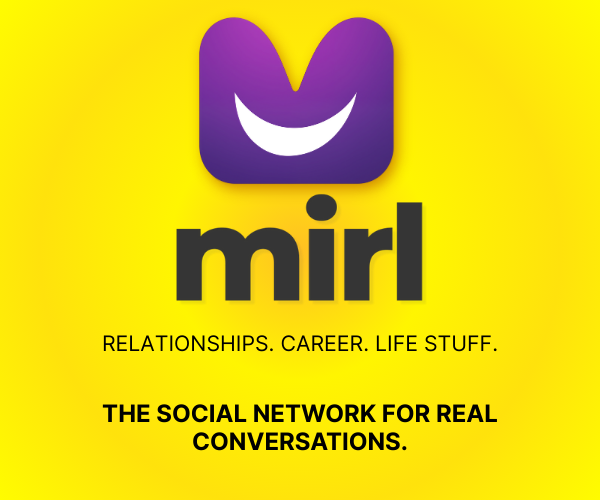Boundaries in a Relationship: 43 Healthy Dating Rules You MUST Set Early On

In order to have a healthy relationship, you need to know how to set boundaries. And this includes both your personal ones as well as a couple.
All healthy relationships have one thing in common: boundaries. But what are boundaries? Well, they differ for every couple, but there are some basic commonalities for how to set boundaries in a relationship.
Boundaries can be set so that fights don’t go too far. They can also be in place so you or your partner doesn’t overstep and include themselves in something you want to handle alone.
So, depending on your relationship, the boundaries you set will vary, but they should always benefit your relationship as a whole, not just one person.
What are relationship boundaries?
In a nutshell, a boundary defines ownership and responsibility. When you are in a romantic relationship, the “things” that are yours are not usually tangible.
The boundary line helps you define where you and your partner start and stop. [Read: Healthy relationship boundaries – how to talk about them and set them]
It is about creating limits between the two of you. Ideally, these limits will benefit both of you and help you understand your partner and vice versa.
In other words, boundaries define what is your responsibility in the relationship and what is your partner’s. It shows who you are as an individual and who your partner is as an individual, without turning into one new identity as a “couple.”
The boundaries can vary a lot – from your body, words, actions, attitudes, values, preferences, and emotions. [Read: The crucial steps you need to take to set boundaries in your life]
For example, if you don’t want to be touched in a certain place because it doesn’t feel good, then you can say no. Or, if you become rude to your partner, you need to take responsibility for that and apologize to them – and don’t do it again.
One of the biggest reasons for creating boundaries in a relationship is to eliminate blame and frustrations. When you have healthy boundaries, you reduce the chances of blaming your partner and them blaming you for something.
People usually blame others when they want to deflect responsibility onto someone else. [Read: The right steps to learn to set boundaries in a relationship & 15 rules you need to follow]
When you take responsibility for your part in the conflict, misunderstanding, or whatever other problem you have, then your partner should be willing to take responsibility for their part too.
If both people do this, then you can resolve your issues a lot easier.
This is the beginning of forming strong emotional bonds with your partner. Without them, problems can easily arise. [Read: Smothered in a relationship – 37 signs and ways to stop feeling suffocated by your partner]
The most important rules for new relationship boundaries
Boundaries are a great way to see if you and your partner are even on the same page. Maybe you aren’t as compatible as you think.
But what kind of boundaries do you need to set in your new relationship? You probably haven’t thought about it yet, but it’s time you did.
If you’re wondering what boundaries you need to set in your new relationship, well, good thing you’re reading this feature. [Read: New relationship mistakes couples make ALL the time!]
We’re going to talk about all the new relationship boundaries you should set early on in your new relationship. It’s time to understand the rules that matter in a happy and healthy long-term relationship.
1. Communication
If you want this relationship to work, you both need to be clear on how you communicate. You may not be into texting, but that doesn’t mean your partner knows that.
Maybe they hate talking on the phone, but you love it. How are you going to talk? [Read: Use these habits for texting in the early stages of dating]
This can lead to some problems in a new relationship. The person who prefers texting might be resentful that the other one always wants to talk on the phone. And the phone talker might be annoyed that their partner only likes to text.
It’s important to let them know how you usually communicate. Be clear and upfront about your preferences.
That way, they’re not offended when you send them short texts or want to have long phone conversations. This is one of the most important new relationship boundaries.
Communication is essential, so you need to be on the same page with your partner. [Read: The 16 steps to better communication in a relationship]
2. Alone time
Everyone likes their personal space. Just because you have a new partner doesn’t mean you need to spend every waking moment wrapped around them. How much time do you need for yourself?
It doesn’t have to be a serious conversation but it’s certainly something you need to casually discuss. Some people need more time to themselves while others don’t.
It’s good to approach this discussion by talking about whether or not you are an introvert or an extrovert. [Read: How to be a better partner to an introvert]
Introverts require a lot more alone time to recharge and rejuvenate themselves. Whereas extroverts need time with other people to charge themselves.
You see, if you have that fundamental personality difference, it could be quite difficult to negotiate a happy medium.
If you don’t know your personality type, you can go to a website like 16Personalities.com. Take the free online test so you can learn more about each other’s personalities and the need for alone time.
3. Type of relationship
This seems to be an issue for many couples. One person just wants a casual relationship while the other one is looking for something more serious. It would have been best to talk about this on your first date – or even before.
You don’t want to get into a new relationship and find out they only want a casual hookup and you are looking to get married!
You would think that most couples would talk about this in the beginning when they are negotiating their new relationship boundaries. But they don’t. [Read: When to define the relationship – 20 signs it might be right now]
In fact, most people just assume that the other person is in agreement with them.
However, you are not a mind reader, and neither is your partner. You cannot make any kind of assumptions when you are in a new relationship.
You have to ask your partner clearly, and upfront about what they want. And you need to tell them what you want. [Read: 50 questions for a new relationship to predict your romantic future together]
Now, your commitment level is your decision, but you need to express your level of commitment to the relationship.
If not, you’re going to have some serious drama and heartbreak happening in your relationship.
4. Social media
Many times in a new relationship, people are hesitant to post pictures together on social media. They probably do this because they are cautious and don’t want to seem too over-eager too soon.
Plus, how do you really know how your partner feels about it? [Read: 15 real relationship goals most couples have no idea about]
Some people are very private and they don’t want their personal life out there for everyone to see. While others practically narrate their whole lives for everyone’s viewing pleasure 24/7 with reels, stories, videos, and more.
So, you need to talk about what your preferences are for social media as a new relationship boundary.
You are between a rock and a hard place if you don’t openly talk about it. If you don’t post pictures, then it might bother your partner. But if you do, that could also annoy them. [Read: Social media & relationships – the good, the bad, and the ugly]
Another aspect of social media that is one of the most important new relationship boundaries is the relationship status
Do you say you’re in a relationship and name your partner? Do you keep it as “single?” This needs a serious conversation before either of you makes a move to declare your relationship to the world.
We all know how influential social media has become in our lives. So, it’s important to talk about social media and how they feel about it. [Read: Does your Facebook relationship status really matter that much?]
5. Dates
Though your first couple of dates may be wild or unique, in reality, once you’re in a long-term relationship, your dates will be more predictable and ordinary. You and your new partner need to come to an agreement on how you wish to spend time together.
Talk about what you normally like to do. Do you like going to movies, happy hour, dancing, or listening to live music?
If you do, then tell your partner. And ask them what they like doing. You may enjoy watching Netflix on the couch all weekend, but your partner may enjoy going for walks. [Read: 33 awesome date ideas every couple should try]
As we just said, the first dates will always be exciting, regardless of what you do together. But as time goes on, you might find that you are not on the same page about the things you enjoy doing.
You have to find a happy medium.
6. Sharing
We know you just started dating but when it comes to sharing things, this is when it can become a little tricky. You need to lay down these boundaries early on in the relationship. [Read: Stages of a new relationship to define your budding romance]
Do you want your partner to know your passwords to all of your devices? Maybe you believe in splitting the bill but your partner doesn’t.
Sharing goes beyond finances and passwords. Sharing also means self-disclosure and telling your new partner about your past, your hopes, your dreams, your morals, and the whole way you view the world.
Some people view sharing personal information as risky, but others think it will emotionally bond them to the other person. And both of them are true to some extent. [Read: 4-month relationship – what to expect when you hit this mark?]
When it comes to personal privacy, finances, sharing personal information, and new relationship boundaries, these are always questions that arise sooner or later.
So, try to assess what you are both comfortable with when it comes to sharing these things.
7. Intimacy
We all know how important intimacy is in a relationship and it will come up in conversation. This is something you need to address as soon as possible. [Read: Weird, unique ways to build intimacy with your partner]
Maybe you’re not into PDA, or you want to wait several months before having sex. These are things your partner needs to know.
Whether you prefer to be intimate early in the relationship or to hold off is your decision, but you both need to be on the same page.
Let’s face it, everyone has a different sex drive. You might be dying to have sex on the first date, while they want to wait until marriage! [Read: 25 horny ways to increase your sex drive and keep it high]
Even if you are more similar in your approach to physical intimacy, you still need to negotiate the frequency.
One of you might want to have sex once *or multiple times* every day while the other is happy with once a week. That’s a big difference.
So, while it might be weird to talk about that early on in your relationship, it can definitely save you a lot of problems in the future. [Read: How to talk about sex without sounding like a pervert]
8. The future
You don’t know where your future will take you or how it will look but you have an idea of how you’d like your future to look. Maybe you want children, maybe you don’t, maybe you want to spend your life traveling.
Though this relationship may be fresh, who knows if this will end up as something long-term or not? But if you want kids and they don’t, this will be a problem later on.
Again, it may feel awkward talking about these things so early on. However, if you don’t, you might find out that five years down the road you are both on opposite ends of the spectrum when it comes to your future. [Read: 60 deep yet fun questions to get to know your partner and peek into their soul]
Do you really want to waste all of those precious years only to discover your relationship is doomed because you didn’t talk about this early on?
9. Deal breakers and must-haves
Yeah, this is important. You’re going to need to lay out what you will and what you won’t do for them. This sounds harsh, but let’s be honest, you have boundaries and so do they.
Now, it doesn’t have to be big dos and don’ts but they need to be expressed regardless of size. [Read: 17 deal breakers you need to fix to become a good partner]
In addition to deal breakers, you should talk about your must-haves. These are the things that you absolutely can’t do without in a relationship.
It could be regular sex or constant texting. It doesn’t matter what it is. As long as it’s important to you, it matters.
If you feel uncomfortable bringing this up, start by talking about what you don’t expect your partner to do for you. Then before you know it, the conversation will drift to deal breakers and must-haves, and all without any stress involved! [Read: 27 most common relationship deal breakers that push many couples apart]
10. Conflicts
Who thought this would have to be a boundary to discuss? But it’s essential. How you handle disagreements can make or break your relationship.
Maybe you’re someone who needs space after an argument or you’re someone who needs to solve the problem right away. How are you as a person when you fight? [Read: Are relationship fights normal? 15 signs you’re fighting too often]
There are five main ways that people handle conflicts: avoidance, competing, compromising, giving in to the other person, and collaborating to find a mutual solution.
We all have our own styles, and they were formed by watching our parents in childhood.
So, if you are one who avoids conflict, but your partner wants to compete to win during an argument, this can cause some major problems, as you can probably imagine! [Read: How to resolve conflict – 15 best ways to cut out the drama]
11. Sexual kink
Everyone is sexually different. Some people are quite vanilla when it comes to their sexuality, while others are into some major kinky stuff.
Some may prefer submissive sex or having sex in the afternoon while others prefer slow, sensual, and predictable sex. Neither is bad nor wrong, they’re simply preferences. [Read: Top 50 kinky sex ideas worth trying at least once in your lifetime]
You and your partner will have to see if your kinky or vanilla sexual preferences match each other and see how much your partner is willing to compromise and experiment.
This is very important, because if one of you is into S&M and the other just likes missionary style, then you probably won’t be very compatible. [Read: How to know if you have sexual compatibility with your partner]
12. Clarify and check-in
You need these boundaries clarified. Now, if you’re unsure about their answer, don’t be afraid to ask again for clarification.
This is your life, and you need to take control of it. If you’re not sure how they feel about a specific topic, then ask them to elaborate on it. That way, you know right away and no one can point the finger at you. [Read: 15 romantic gestures for a new relationship all couples should know about]
Also, as time goes on, you need to keep checking in with one another to make sure your new relationship boundaries are still working for the two of you.
One of you might be violating the other person’s boundaries without even knowing it. So, keep the communication open, and never be afraid to renegotiate if you need to.
13. Triggers
We all have baggage from past relationships. Whether you have trust issues, self-esteem issues, or dealing with mental or emotional abuse. Having boundaries set in place in your new relationship is a great place to start. [Read: 15 ways you can open up more and be vulnerable]
Make sure your partner knows what you’ve been through and what sort of behavior is off the table.
If cursing in a fight brings up bad feelings for you, let your partner know how it makes you feel so you can move forward in a healthy way. And vice versa.
14. Expectations
Boundaries are not just stopping points in a relationship, but also expectations. [Read: How to manage your expectations in a relationship]
What do you and your partner expect from one another? We’re assuming neither of you is a mind reader, which means you have to tell each other what you want from one another.
Let your partner know if you expect to talk or meet every day. Let them know if you expect them to do certain things, like have dinner with your family once a week.
If you don’t communicate about what you both expect from one another, you will both begin to resent each other for not living up to your expectations. [Read: 15 ways to give space in a relationship and feel closer than ever]
15. Financial independence
Just because you’re a couple doesn’t mean every part of your life is shared. You may want to be independent with your money. Are you willing to bail your partner out of a jam by lending them money? What if they can’t pay their rent for one month?
You and your partner need to discuss what you are willing and not willing to do in these situations with your money. This way, if something does come up, you will already have a plan in motion. [Read: 25 subtle relationship turn-offs that provoke and push a couple apart]
16. Monogamy
Just because you are in a relationship doesn’t mean being faithful is a given. Boundaries need to be set in a relationship when it comes to commitment.
Are you all in or are you still testing the waters? You don’t want to assume you are monogamous to later find out your partner has been seeing other people.
So, discuss your relationship boundaries. Talk about everything from sex, to kissing, and even flirting. What is off-limits outside of you two? [Read: Can someone please define monogamy?]
17. Family
We’re not just talking about marriage and kids here, but how involved will you be in each other’s extended family? Can your partner reach out to your siblings or parents on their own?
Where are you spending the holidays? Some people are very protective of their families and others don’t get along too well at all.
Knowing where you and your partner stand with each other’s families is important to prevent anyone from stepping on each other’s toes. [Read: Family oriented – the meaning what it means to be this person]
18. Location
Something that can break up even the strongest relationship is distance. Are you both willing to commit to a long-distance relationship?
How long will it last before someone moves? Are you willing to move to be with your partner and are they willing to do the same for you? [Read: Long distance relationship – 46 LDR tips to make it work and not screw up]
19. Friends
Some couples share a friend group while others have their own separate friends. Setting boundaries for friendships is so important. Do you want to see your friendships somewhat separate from your relationship?
Do you have male or female friends that your partner is comfortable with you hanging out with alone? Discussing anything friend-related can diffuse a fight before it even begins.
20. Changes
This is a tough one. In every relationship, changes will arise. You cannot foresee how to face them because you won’t know what they are. [Read: How to know if your partner is truly supportive of you]
Setting boundaries for how to handle unforeseen issues will help you both remain calm when things arise.
21. Break-up
Talking about a break-up while you are still happy can really feel scary, but if you live together, share close friends, a pet, etc. it is something you may want to bring up.
This is probably the weirdest and scariest of them all, but discussing how to handle a potential break-up can save time and pain later on. And if you stay together, at least you made a boundary just in case.
How to establish healthy boundaries – The right steps to follow
Now that you know what areas to establish and set your boundaries in a relationship, how exactly do you do it? Here are some tips for you to do it successfully. [Read: How to communicate with your spouse without resentment or fighting]
1. Communicate your thoughts and feelings clearly
You have to be honest with your partner. Be respectful and clear when you share these. Sometimes it can be difficult to know what you are thinking and feeling at the moment.
If that’s true for you, ask for some time so you can sort it out. But don’t think so long that you end up avoiding problems. [Read: How to communicate in a relationship – 16 steps to a better love]
2. Don’t guess your partner’s feelings
Instead, you need to ask them directly. You’re not a mind reader, and if you try to be, you might get it wrong. Don’t put your words to their feelings.
3. Take responsibility for your choices
Don’t blame your partner for how you feel. You have the choice to feel and do what you want. It’s not their fault. You own yourself – they don’t own you.
Ask yourself how your choices, whether they are accidental or on purpose, might have contributed to the situation you are in. [Read: How to be mature – 25 ways to grow up and face life like an adult]
4. Take ownership of your feelings
You can say things like, “I felt hurt and misunderstood when we talked yesterday.” This is “I” language and makes your partner less defensive than if you said, “You hurt me because of how you raised your voice.”
Why are healthy boundaries important?
You may think a healthy relationship should have no boundaries. [Read: Relationship rules – 30 must-know relationship tips to live your best love life]
You may assume that everything should be on the table and shared equally because you are both now equal partners. But boundaries and rules are not the same things.
Boundaries are there to help you and your partner work through struggles and come out stronger rather than weaker. They are not there to limit your relationship or limit each other.
In other words, boundaries are guiding points for a successful relationship. Without them, staying together can be much more difficult because no one takes responsibility for anything. [Read: How to build trust in a relationship and make it last]
Far too many couples end up with problems because they assume that the other partner should automatically know what they want and need and what they don’t want or need.
The thing is, you’re not a mind reader. Neither is your partner.
By not communicating clearly, you set yourself up for a major drama in the future. Surely, it’s easier to just sit down and talk about these things pretty early on? [Read: Signs you’re way too codependent and overstepping boundaries]
Boundaries allow you to retain your independence and remain your own person. They allow you to feel safe and comfortable within a relationship and grow together as a couple, without facing problems that make you anxious.
There are countless different boundaries you could set. But ensure that whatever you do talk about sits on the healthy side of the line and isn’t erring into unhealthy territory.
Boundaries are lines, not rules
By setting boundaries within your relationship, you’re not setting up a rule sheet to print out and give to your partner for future reference. It’s a set of lines that you feel comfortable with. [Read: How to compromise in a relationship and not feel like you lost out]
This comes from communicating openly and honestly about what you need from the relationship and what you don’t feel comfortable with.
For instance, you may have a hard line that you never want to get married. You might have your own reasons for this, but it’s something you are sure of. It is a boundary for you.
It would be unhealthy if you simply pushed this onto your partner and said, “take it or leave it.” [Read: A checklist for a happy and healthy new relationship]
On the other hand, it would be healthy if you sat down and discussed it with your partner, explaining your reasons and exploring other options that you were both happy with or open to in the future.
Boundaries are designed to help you feel comfortable
Of course, there are some boundaries that should never be crossed and should be communicated clearly.
Anything related to your sex life, anything that you’re simply not comfortable with, or never want to try should be communicated and respected. [Read: 25 things couples in happy relationships always talk about]
The same goes for anything your partner communicates to you.
It’s all about talking and exploring your relationship together, within the boundaries of what is healthy and what isn’t. Boundaries are there to help people feel comfortable. When you feel that way, you’re able to thrive and grow within a relationship.
Healthy relationship boundaries ensure that your relationship never starts to move into territory that you feel uncomfortable with, restricted within, or unhappy about. [Read: How to keep from moving too fast in a new relationship]
Of course, this is two-sided and ensures that your partner feels the same way.
Set personal boundaries within yourself first
Now that you know the boundaries that you should have with your partner, you should have a good, long talk with yourself about what you will and won’t accept in a partner. But before you even consider that, learn to set your own personal boundaries as well.
Once you are clear with yourself, then you won’t waste your time with people who don’t respect your personal boundaries. So this is an important first step. [Read: How to set personal boundaries and guide other people to respect them]
Personal boundaries are like commandments you need to stick by to be true to yourself. Some boundaries are followed more strictly than others, however, they still apply.
Basic boundaries to set for yourself
As we have stated before, everyone’s boundaries will differ because they are personal to you. However, there are still basic boundaries that are commonly set among people seeking healthy relationships.
There are some basic boundaries to ensure you end up with someone who treats you right. Here are some core personal boundaries to apply to your new relationship:
1. They are single and don’t have a partner or are married
Unless they have broken up with their partner or are in the process of divorce, there is simply no need for you to be with this person. If they tell you they’re going to leave their partner for you, believe it when you see it. [Read: Are you dating a married man?]
In the meantime, don’t waste your time. You’re a filler for them. Something to help ease their mind on whatever problems are going on at home. Don’t be an emotional airbag for them. They can pay for a therapist or go on Dr. Phil.
2. No means no
It doesn’t matter if they’re a woman or man, has three legs, one leg, listens to Justin Bieber, or have a pet turtle. When you say “no,” they should respect it.
If someone doesn’t understand the meaning of “no” or simply ignores you when you say it, they don’t respect you. [Read: Be careful who you trust – how to beware of backstabbers]
They just actually don’t care. Yeah, dating the bad boy or the cool girl is exciting, but in the long run, it’s not worth it. Haven’t you seen any chick flicks? They always end up alone.
3. Someone who can’t apologize
You may think this isn’t a big deal, but if you’re dating someone who doesn’t want or doesn’t know how to say sorry, run. This is one of the big ones in the boundaries of dating.
Acknowledgment of your own actions and taking responsibility for your mistakes are essential. What happens if you get into a fight where they screwed up and they don’t want to apologize? [Read: How to apologize and say sorry to a lover]
It’s going to be a draining and endless relationship of you taking the blame for everything.
If you’re with someone who never apologizes, then eventually you might just go silent since every argument would point back to you, emotionally and mentally. And it sucks the life out of you.
4. Manchild or womanchild
We all have some mommy/daddy issues bottled up in us. Maybe your dad didn’t catch you when you fell from your bike in second grade or your mom always yelled at you. We all have something. [Read: Immature men – 27 manchild signs and why you should stay away from him]
The point is, don’t become someone’s parent. If they have issues, they need to fix them. Sure, you can support them, but their baggage is their baggage.
There’s being in an equal relationship and then there’s having someone rely on you for all their needs. No way, not happening.
5. Someone who is unkind to others
If you’re wanting to know what type of person your partner is, look at how they interact with their parents. Are they unexplainably rude and verbally/emotionally abusive to their mom and dad? [Read: Calm ways to recognize mean people and deal with them]
Yeah, they won’t treat you any better. Because if they talk to their parents with unkind and cruel words, the ones who gave them life, what makes you think you’re something special?
Nah, we ain’t down for that.
6. Don’t chase anyone
Listen, the ego is a sensitive thing. But remember, they’re just not that into you. If you’re casually dating someone and you see they aren’t really reciprocating, don’t force it. End it.
Maybe they’ll see that they missed out on a great person, but maybe they won’t. [Read: Stop chasing him – why guys run and why you shouldn’t chase him]
If you’re showing interest, and they’re making you run around like a dog for them, then you’re being made into a fool. Don’t become a Mr. T catchphrase.
7. Liars
PANTS ON FIRE… Perhaps your pants are actually on fire from the Chlamydia they gave you after they lied about cheating on you. See how that works?
Yeah, not fun, it burns both figuratively and literally. You don’t need someone who’s going to lie to you. [Read: STDs 101 – the most common types and their symptoms]
You don’t have time to decipher the messages and creep their phone for hints and clues of what’s really going on. This is not a sad treasure hunt, it’s a relationship.
8. Name-calling
What are we? Twelve? If your partner calls you names or makes degrading comments, they can go back to the playground. Come on, you don’t need that.
Since you’re dating, perhaps you need to tell them that certain names or things they say to hurt you are inappropriate. Now, if they ignore that, then they need to go. [Read: Avoid them like the plague – 16 types of guys not to date]
Because why? Where’s Aretha when we need her? R-E-S-P-E-C-T.
9. Pushing sexual desires on you
Listen, if you don’t want to have a threesome with your partner and the girl working at the bar across the street, then don’t. If you don’t want to try anal beads, then don’t.
Some people are more sexually experienced or adventurous than others, and that’s okay. But make sure you talk about it and set the limit for what you will and will not do in bed. [Read: Emotionally unavailable man signs – 25 red flags to look for]
That way, they’re not entering the bedroom with a foot-long dildo, catching you by surprise when all you wanted was to watch Fifty Shades of Grey, not live it.
10. Trust
Trust is a huge boundary must. You should not be in a relationship where you feel like you can’t trust the other person. Plus, trust needs to be earned, so keep your eye open for any shady behavior.
If you do start to get suspicious of their behavior, follow your gut intuition – it’s almost never wrong. And don’t just stay with them so long that they prove to you that they are untrustworthy. [Read: 20 signs you can’t trust the guy you’re dating and he’s up to no good]
This also shows you they’re not as into you as you think they are if they are willing to betray you in any way. Don’t be a convenience for them.
11. Respect at all times
Just like Aretha Franklin sang, R-E-S-P-E-C-T is vital in any relationship. If there is no respect or any times when respect is lacking, you need to seriously think about the future of your union.
A solid and healthy boundary is to demand respect at all times. Of course, that also means that you should respect your partner too. [Read: How to show respect in a relationship and love each other better]
12. Support and encouragement
Your partner should be someone who has your back, supports you, and encourages you to be the best you can be.
Any behavior which goes against this, i.e. they don’t want you to do something because they’ll be alone for a few nights while you’re working, or they’re scared you’re going to meet new people and move away, needs to be addressed.
13. Healthy and open communication
Neither of you is a mind reader nor should you be expected to be one. One of the best healthy relationship boundaries to set revolves around open lines of communication and speaking about things that are bothering you. [Read: Monogamous relationships and your mind]
Simply expecting your partner to understand what you want without telling them is not going to work. Of course, you want them to open up and tell you when things aren’t going well too.
14. Boundaries are boundaries
You made them for a reason. They aren’t negotiable. So, if your partner doesn’t agree that you should be treated with respect, then as Beyonce once said, “to the left, to the left.”
However, your core personal boundaries are your core personal boundaries. Don’t make an excuse for that person and alter it to please them. What’s the point of having them then? [Read: How to show respect and better love in your relationship]
These are just a few healthy personal boundaries to get you thinking. It’s difficult to give you an exhaustive list because every single person on the planet will have a different view of what is right and wrong for them.
Some people want one thing, while other people want another. But basics like respect, communication, and trust form the backbone of any relationship and should always be mentioned when talking about healthy personal boundaries.
When to have the conversation about relationship boundaries
Now that you are clear on what personal boundaries you should have before and during a relationship, you should also set relationship boundaries. [Read: Non-negotiables in relationships – things you shouldn’t compromise on]
You should set your boundaries together, as early as possible, but not too early.
You can set healthy relationship boundaries without having a conversation. For instance, the way you act early in a relationship sets out what you will and won’t tolerate.
If your partner does something which you’re not happy about or not comfortable with, communication about that particular issue will show that a boundary has been put into place. [Read: Your complete guide to building a healthy relationship]
It’s not about sitting down with a pen and paper and writing a list of things that are boundaries for you both. It’s about finding your way together but communicating your needs, wants, desires, and fears.
By sitting down and saying “right, we need to set some boundaries,” you run the risk of scaring your new beau right off!
All you need to do is be sure of what you want and what you don’t want. Then, communicate these throughout the relationship. [Read: 31 must-follow relationship rules for happy love]
Of course, part and parcel of communication is listening. Listen to the same information coming from your partner. By doing that, you don’t need to sit down and have a heavy conversation, unless something serious happens.
What is considered healthy and what is unhealthy?
You can’t just go around setting any old boundary and expecting it to be kept. The idea here is to have a long-lasting relationship that thrives and brings you both joy and happiness. If you set unhealthy or restrictive boundaries, that isn’t going to happen.
Boundaries are not rules. They’re the lines you set in your relationship. [Read: 17 things a guy shouldn’t do on Instagram when he has a girlfriend – the must-follow rules]
For instance, spending time alone. You need to spend time with family and friends and not constantly be with your partner. If your partner is always trying to be by your side and doesn’t give this time to you, that’s one of the boundaries that you should set.
Let’s look at a few healthy relationship boundaries versus unhealthy boundaries here. [Read: New relationship boundaries – lines all new couples must draw early on]
1. Understanding your responsibilities to yourself
It is healthy to know that you’re responsible for your happiness. It’s not healthy to feel completely lost and incomplete when your partner isn’t around.
2. Friendships and outside connections
It is healthy to have friendships and connections outside of your relationship. It’s not healthy to rely upon your partner for everything, including your sense of happiness and fulfillment. [Read: How to spot codependent behavior early on and regain your self-identity]
3. Communication needs
A healthy relationship boundary is to be able to communicate honestly with your partner. It is not healthy to feel fearful of speaking up, to manipulate or play games with your partner, or for them to do this to you.
4. Respecting your differences
It is healthy to have differences and respect them. It isn’t healthy to point these differences out or become jealous of your partner.
Can you see the differences? Healthy relationship boundaries form the basis of what is healthy and what isn’t. [Read: 15 easy ways to make your relationship way stronger and better]
For instance, if you’re someone who was cheated on in their last relationship, it’s very normal that you might be a little fearful of it happening again. This isn’t something you should try and avoid. It’s part and parcel of your past and the consequences of what your ex-partner did to you.
However, it wouldn’t be healthy of you to press those past experiences onto a future partner and to become suspicious and fearful every time they go out. In that case, you move into unhealthy territory. [Read: 20 things happy couples don’t do in a perfect relationship]
Remember that healthy relationship boundaries work both ways
While it’s important to know your own boundaries, it’s also vital that you understand your partner’s needs and desires too. You can’t have everything your own way in a relationship, and you need to learn to compromise between the two of you.
Perhaps your partner tells you that they never want to get married, but you’re not sure about the subject right now. In that case, perhaps discuss a civil partnership instead, or living together over the long term. [Read: Compromise in relationships – tips to give without losing]
That way, you’re getting the level of commitment you want, and your partner doesn’t feel pressured into marriage.
Without the ability to communicate and compromise, your relationship is not going to go far. But that doesn’t mean you should always bend to the things that are especially important to you.
It’s about a fair balance and you’ll only find that by talking to each other and taking the time to really listen to your partner.
[Read: Tips for setting boundaries with difficult people]
Boundaries are boundaries and you need to have them in place before getting into a relationship. If you set boundaries for yourself and your relationships, you’ll find a partner who respects you and treats you how you want to be treated.



















